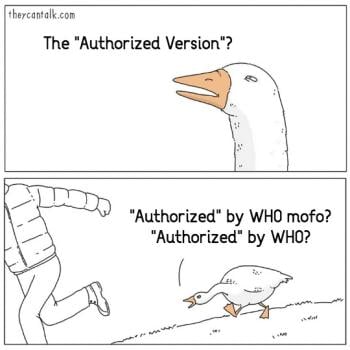Lectionary Reflections Year A
Fifth Sunday in Lent
April 10, 2011
Ezekiel 37:1-14
Sometimes, biblical texts are so familiar it appears difficult to say anything genuinely new about them. Such, I imagine, is the case with Ezekiel 37, the famous "dry bones" passage. Even as I peck out these thoughts, a version of "Ezekiel connecta dem dry bones" is coursing through my head. What a fun tune! I imagine each of you has heard it a time or two in your own life. If not, google one up posthaste.
It has long been said that here in Ezekiel we get one of our first hints of resurrection from the dead among the Hebrews, who spent most of their religious history little concerned with such matters, imagining that life beyond death consisted of an interminable sojourn in a place of shadows known as Sheol. All went to Sheol after their demise, regardless of the sorts of lives they had lived, and did precisely nothing for a very long eternity (see Job 3 for a grim description). However, though later commentators may have glimpsed resurrection, it seems quite clear that Ezekiel had no such thing in mind. He was obviously concerned with the rebirth of the fallen nation, as Ezekiel 37:11 makes abundantly clear.
But given that fact, the more interesting question may be: just what is the prophet's specific role in this rebirth? And even more interesting than that is: just what has God to do with it all? The answers to those two questions may be more valuable for us this Lent as we probe Ezekiel's very peculiar, and downright scary, image of the valley of dry bones.
As usual in Ezekiel his story begins with God seizing him and "bringing" him and "setting (him) down" in the middle of a place (37:1). Poor Ezekiel is forever being grabbed by his God and moved from place to place, in one instance forcing him to fly between Israel and Babylon, and, perhaps, back again (!). Not only was this valley remote and barren, "it was full of bones." I am reminded of the LaBrea tar pits in Los Angeles, where ancient bones of long-dead and extinct animals have been preserved in smelly tar and protrude from the ooze for us to see even today. But unlike the bones at the LaBrea pits, these bones "were very dry" (37:2).
Bones, of course, become dry after they have been exposed to the elements over a long period. Dry bones are evidence of conflicts of one sort or another that occurred years ago, and the very last thing one imagines when gazing on dry bones is their potential to be anything other than signs of past life and present death. Nevertheless, the question God asks the prophet is, "Mortal, can these bones live?" (37:3)
The question is absurd on its face; many things may be thought about dry bones but the possibility of their coming back to life is hardly one. And Ezekiel's response to the ridiculous question is appropriately ambiguous: "O, Lord God, you know." This response may be heard in several ways: "God, only you know, since as far as I am concerned dry bones are not going to pop back to life. Or if they do, I would just as soon not be around to see it happen!" Or: "If you, God, ask a foolish question like that, then I give you the opportunity to answer, since in my experience dry bones are just dead. Life is inconsistent with dry bones."
But God will have nothing of evasion from the prophet. "Prophesy to the bones, and say to them: O dry bones, hear the word of the Lord." Well, if that is not the most absurd of God's calls to a prophet, I am not a teacher of Hebrew! Ezekiel is asked to stand up in a valley chock full of desiccated bones and preach a sermon to them! It could well be that some of you reading these words can rather easily resonate with this call, since you too often imagine that your weekly forays into the pulpit resemble speaking to persons who respond to you as if they were little more than dry bones. But still! A sermon to bones! Really!
At least God gives the content of the sermon to Ezekiel, if not a better congregation to preach it to. "Thus says YHWH to these bones: I will cause breath (wind or spirit) to enter you, and you shall live. I will lay sinews on you, and will cause flesh to come upon you, and cover you with skin, and put breath (wind or spirit) in you, and you shall live; and you shall know that I am YHWH" (37:5-6).
As inane as YHWH's preaching charge is, Ezekiel preaches exactly as he is told. And the result is nothing less than creepy. There was first a noise, and the bones began popping out of the ground and flying together. Then sinews crawled on them, followed by flesh and skin. But these zombies still had no breath in them; they merely lie there, silent and sightless. And YHWH speaks again, and in an equally absurd demand urges Ezekiel to "prophesy to the breath (wind or spirit), O mortal, and say to the breath: Thus says YHWH God: Come from the four winds, O breath (wind or spirit) and breathe upon these slain, that they may live" (37:9). The prophet obeys the command, "and the breath came into them, and they lived, and stood on their feet, a vast multitude" (37:10).





